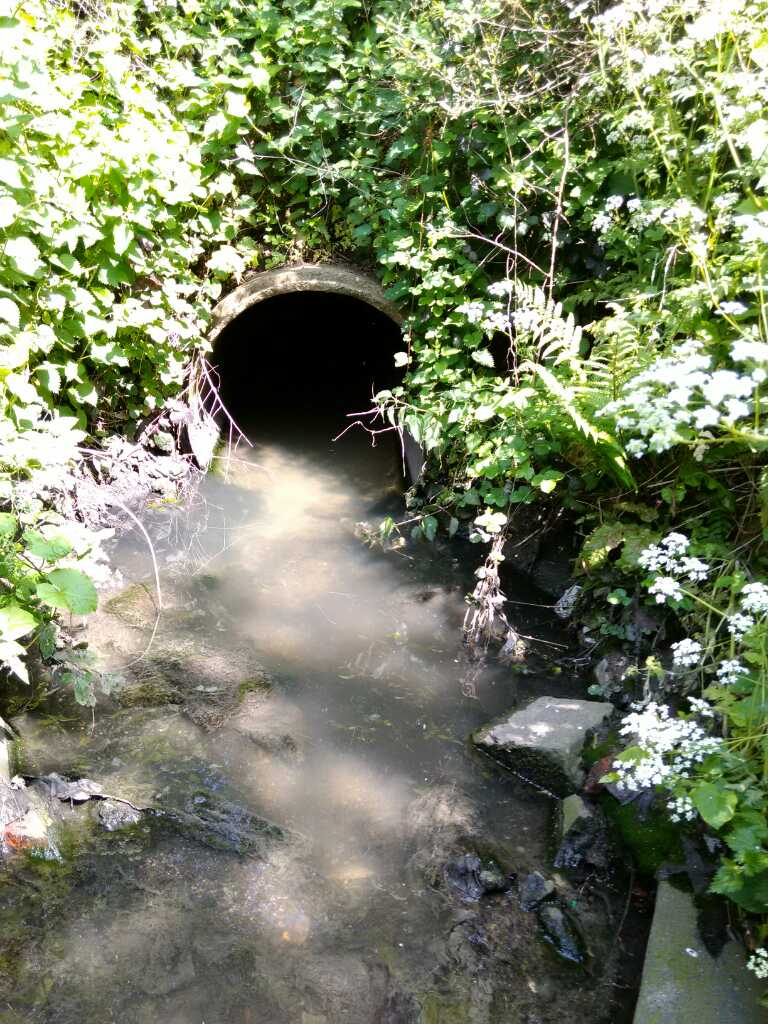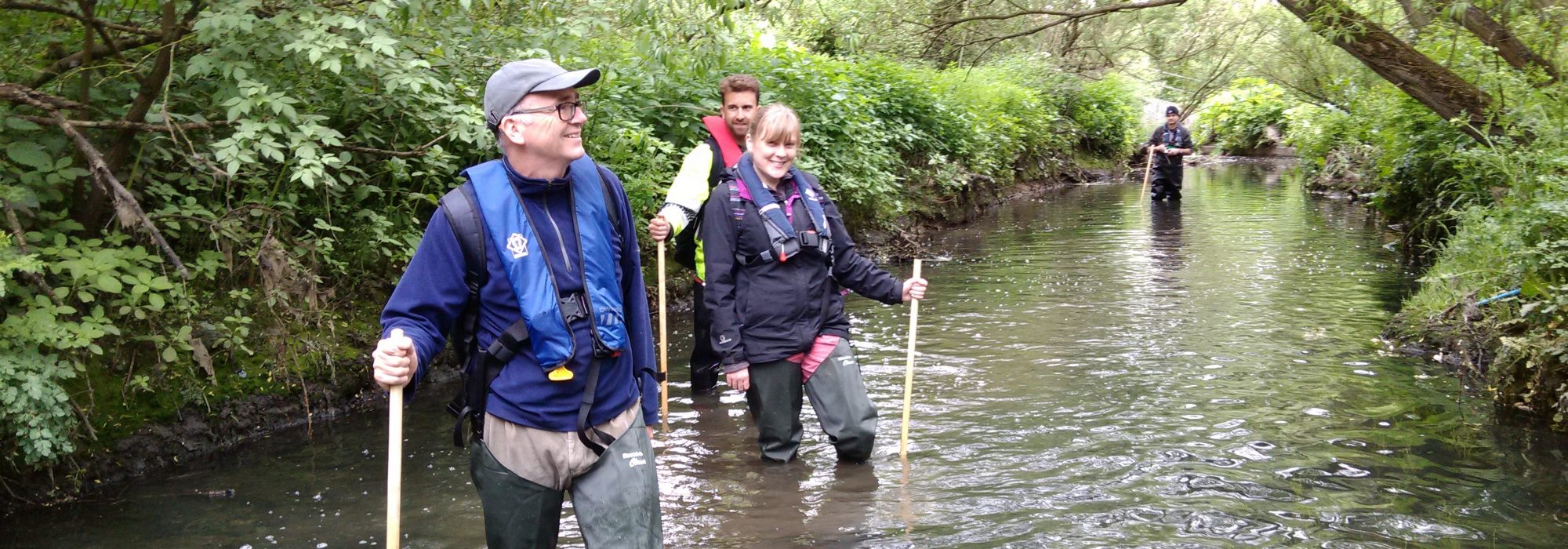Faulty drains threaten Thames water quality
Date of Release: Wednesday 6 December 2017
Londoners urged to check plumbing as signs of contamination found in almost one-third of outfalls across capital
Raw sewage and other pollutants are being inadvertently dumped into the Thames by homes and businesses across London due to misconnected plumbing, according to the most comprehensive survey of London’s rivers undertaken in recent years, led by international conservation charity ZSL (Zoological Society of London).
The study, conducted in collaboration with partners including the Environment Agency, Thames Water, Thames21, Catchment Partnerships in London (CPiL) and over 100 trained volunteers, assessed 1,177 outfalls (drains that send surface water into rivers). Signs of contamination including sewage fungus were found in 356 of these locations, along with definite pollution problems in 269 cases – equating to an average of 2-3 polluting outfalls for every kilometre of river surveyed.

The resulting data indicates that a large number of properties across London are sending foul waste from toilets, sinks and washing machines into rivers via the surface water drainage system, rather than to sewage treatment works. This pollution is degrading the ecological health of rivers, restricting the amount of wildlife they can support.
Joe Pecorelli, project manager for ZSL’s Estuaries and Freshwater team, said: “Based on our comprehensive ‘citizen science’ survey of London’s surface water outfalls, we hope the sobering findings of this report will encourage positive change for the capital’s waterways. Alongside our partners, we’re calling for significant increase in investment to address misconnections in household and commercial plumbing systems across London.
“Approximately 600km of rivers and streams flow through Greater London into the tidal Thames. Together, these waterways represent an invaluable habitat for wildlife, from eels and water voles, to kingfishers and dragonflies – but a history of poor water quality, badly-designed flood defences and adaptations for navigation has prevented many of them from achieving their full ecological potential. As a result, just one of the 39 rivers in Greater London has so far qualified as having ‘good’ ecological status or potential, under the Water Framework Directive legislation designed to protect and improve the UK’s aquatic environments.
“We’re calling on home and business owners across the capital to have their plumbing checked for misconnections. We’re also asking local authorities to ensure the plumbing systems of new developments meet correct standards, and that funding is increased for industry-wide awareness schemes like ConnectRight. Working together, we can make a real difference to water quality and wildlife across the Thames region by tackling this longstanding issue.”
The data for this report was collected via an innovative, citizen science-based approach dubbed ‘Outfall Safari’, whereby teams of volunteers were able to survey river banks and use a specially-created app to geotag, photograph and assess outfalls for evidence of pollution. This invaluable data was then sent back for analysis by ZSL, and reporting to the Environment Agency and Thames Water.
Debbie Leach, Chief Executive of Thames21, London’s leading dedicated waterways charity, said: “There is a massive environmental accident happening across London, and it is devastating our rivers. But because it is happening day after day, it isn’t making the news. That has to change. Each day, more and more waste water pipes from our houses are being connected up to rainwater drains going straight into rivers, and the result is horrendous. Therefore we were delighted to use our long-established skills, of motivating and training volunteers who care for their stretch of river, to contribute to this fantastic work.”
To access the full report, Tackling Pollution in London’s Rivers, please visit: www.zsl.org/londonsrivers
To learn more about the work of ZSL and partners to conserve the wildlife of the Thames and other rivers across London, please visit: www.zsl.org/thames and zsl.org/londonsrivers
-ENDS-
Notes to editors
Media Contact: Tom Jennings, tom.jennings@zsl.org, +44 (0)20 7449 6246
Interviews: Available with Joe Pecorelli (ZSL) upon request
Related images available here: https://zslondon.sharefile.com/d-s638b9957f15447b9
Media contact
Tom Jennings / tom.jennings@zsl.org / +44 (0)20 7449 6246
Related images available here: https://zslondon.sharefile.com/d-s638b9957f15447b9
ZSL
Founded in 1826, ZSL (Zoological Society of London) is an international scientific, conservation and educational charity whose mission is to promote and achieve the worldwide conservation of animals and their habitats. Our mission is realised through our ground-breaking science, our active conservation projects in more than 50 countries and our two Zoos, ZSL London Zoo and ZSL Whipsnade Zoo. For more information visit www.zsl.org
Use of ZSL images and video
Photographs, video or graphics distributed by ZSL (Zoological Society of London) to support this media release may only be used for editorial reporting purposes for the contemporaneous illustration of events, things or the persons in the image or facts mentioned in the media release or image caption. Reuse of the picture or video requires further permission from the press office of ZSL.
